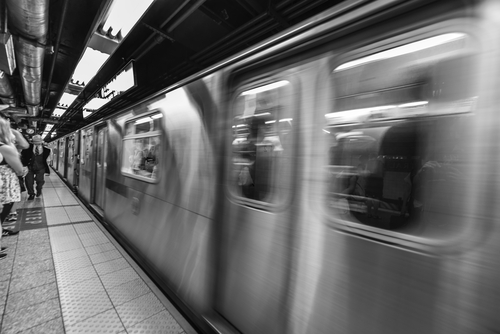Ride-shares and public transportation have become increasingly popular. America is known for being an auto-centric nation, yet trends indicate that Americans may be breaking up with their cars. Americans are demanding more from their transportation than just getting from point A to point B. New trends in transit demonstrate that there are many motivating factors for sharing transportation. A new culture is emerging where societal norms are changing, and there is more awareness for health and the environment.
Cost Effectiveness
In a recent article by CNN, it mentions that there has been a decline in American driving since 2007. This could be linked to the constant fluctuations in gas prices brought on by turmoil in the major oil and gas producing countries of the world. These increases in gas prices have created a demand for alternate means of transportation that doesn’t hit the Average Joe’s wallet as hard. To fill this demand, we have seen the cropping up of many companies that offer rideshares. These companies are start-ups that have manipulated current tech and growth hacking techniques to gain a foothold in a recently carved out niche that was previously run by established organizations. Their safety and methods can sometimes be questionable, but from a business standpoint it has found product-market fit. This has cut down on the amount that Americans spend on purchasing a vehicle, maintenance, insurance, and fuel. It has also cut down on inattentive and negligent drivers which is a cause for celebration due to increased safety awareness.
Eco-Friendly Initiatives
The rise in awareness of environmental decline has affected even auto manufacturers. This has called for new and improved ways to reduce harmful emissions. However, even the top hybrids are causing damage. It seems that the only way to reduce our carbon footprint, is not to leave one at all. Unfortunately, we are not able to fully support electric vehicles on a national level due to gaps in infrastructure (maybe Elon Musk will figure this out soon).
Health Movement
Ride-share systems are gaining popularity in many cities across the US because they promote healthier lifestyles, lessen pollution, and provide an inexpensive way to move about the city. “Bicycling is exploding across the United States, and Washington, DC is no exception: the share of bicycle commuters in the District has grown by 315 percent since 1990 and overall ridership rose 80 percent between 2007 and 2010,” states Georgetown Public Policy Review. With the growing obesity epidemic, there has been a big push for health-conscientiousness. Many of us do realize that our lifestyle choices are slowly killing us, and are choosing to take action. Many of these bike-share programs are federally funded, but finding the funding to keep them operating has proven difficult. This is due to national budget cuts, and bankruptcy filings by the companies that supply the bikes and equipment to most of the ride-share systems in the country.
Social Aspect
The fast-pace life of city-living, coupled with a disconnection from personal interactions due to virtual socialization might also be fueling this culture of sharing. Ride-share programs give people the opportunity to engage and socialize through a common experience. This is not the typical family carpool anymore, but rather an experiment in establishing new social norms. It promotes a sense of community and shared social purpose, thus bonding total strangers in an unprecedented way. Shareable states that Zimriders have found love on the road, made a new best friend, or changed their life in some way because of a fresh perspective from their rideshare buddy. It will be interesting to see how much transportation continues to evolve, and how this in turn affects societal behavior and norms.

